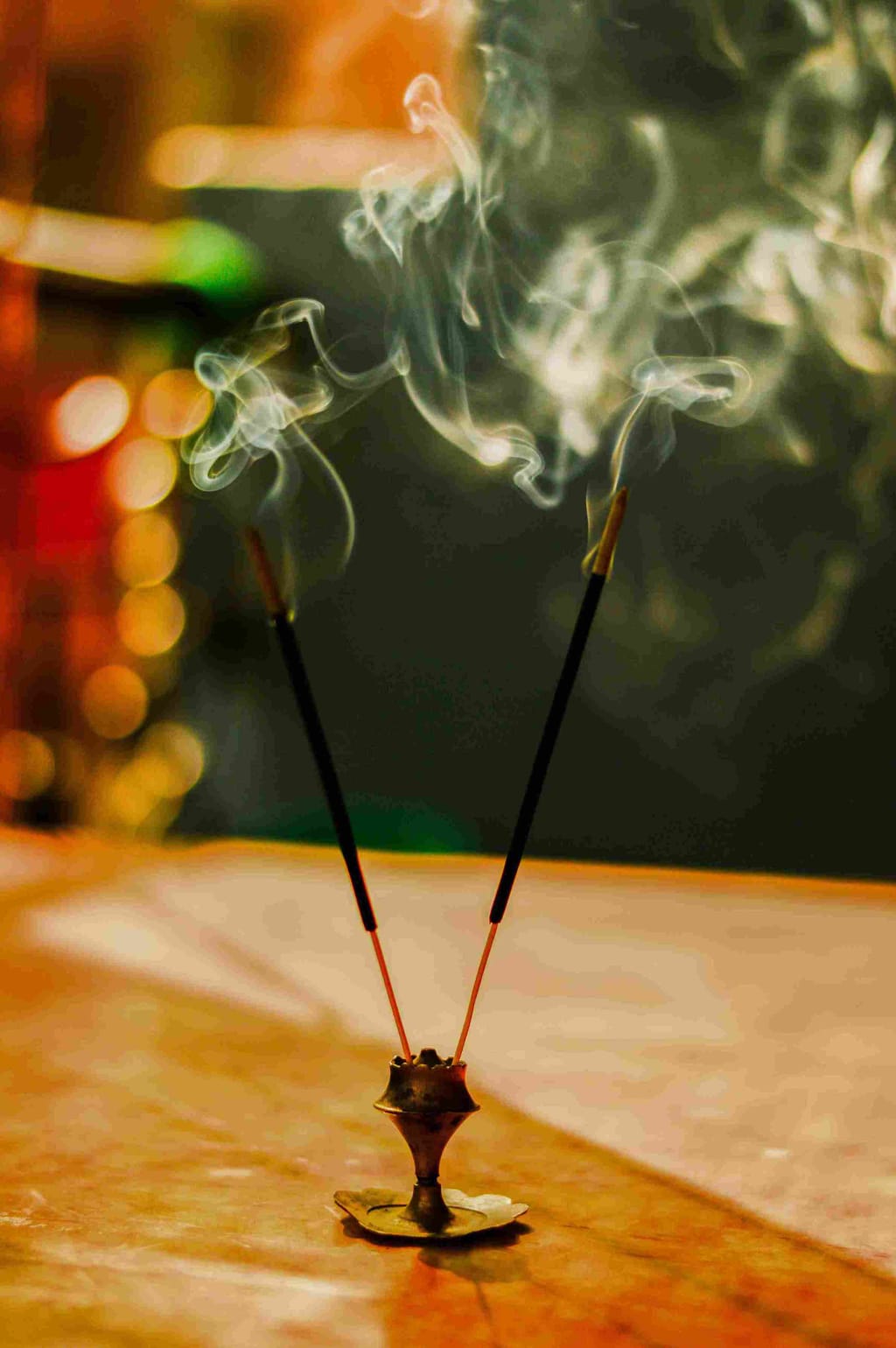Significance of Incense in Worship and Auspicious Rituals
Incense Sticks & Dhoop Cones

Incense and incense sticks have been used in religious and spiritual practices for thousands of years. The use of incense dhoop sticks dates back to ancient times, and it is still an important part of many religious & spiritual practices today. The burning of incense is considered a sacred act, and it is believed to have several benefits. In this article, we'll explore the reasons why incense and dhoop sticks are lit in any worship and auspicious work.
What Is Incense?
Incense is a substance that emits a pleasant fragrance when burned, often used for spiritual or medicinal purposes.
Incense is made from a variety of natural ingredients, including aromatic plant resins, flowers, herbs, and essential oils. The ingredients used in incense can vary depending on the desired scent and intended use. Some of the most common incense ingredients include frankincense, myrrh, sandalwood, lavender, and sage.
The process of making incense dhoop sticks involves combining the desired ingredients and shaping them into sticks or cones. Once shaped, the incense is then dried and cured to allow the fragrance to fully develop.
Incense is typically burned on charcoal or in specialized incense burners, often used in religious or spiritual ceremonies. Burning incense is believed to have a variety of benefits, including purifying the air, promoting relaxation, and enhancing meditation and spiritual practices.
Reasons For Burning Incense And Dhoop Sticks In Any Worship And Auspicious Work
Different cultures and religions have their own unique uses and traditions surrounding incense. In Hinduism, incense is used during puja ceremonies to honour deities and purify the space. In Buddhism, incense is used as an offering to Buddha and to aid in meditation. In Christianity, incense is often used during religious services to symbolize the prayers of the faithful rising up to God.
Enhancing the Atmosphere
One of the primary reasons for lighting incense during worship or any auspicious work is to create a conducive atmosphere. The fragrance of incense is believed to have a purifying effect on the surroundings, and it can help create a calm and serene environment. Using incense can help people focus on their prayers or rituals by calming the mind and body.
Symbolic Meaning
Incense is also considered to have symbolic meaning. The smoke that rises from the organic agarbatti is said to symbolize the prayers and offerings rising towards the heavens. This is why incense is often lit during religious ceremonies and rituals, as it is believed to help connect the worshipper with the divine.
Spiritual Cleansing
Incense is also used for spiritual cleansing. The smoke from incense is believed to have the ability to purify the environment by removing negative energy and purging impurities. The smoke is said to cleanse the surroundings, making it easier for people to focus on their prayers and rituals.
Offering to the Gods
In many religions, incense is considered an offering to the gods. Burning incense is a way of showing respect and devotion to the deity being worshipped. It is believed that the fragrant smoke from the incense is pleasing to the gods, and it helps to attract their attention and blessings.
Aromatic Healing
Incense is also believed to have healing properties. The aroma of incense is believed to have a helpful effect on the body as well as the mind. Different types of incense have different fragrances, and each fragrance is believed to have specific healing properties. For example, lavender incense is said to help calm the mind and reduce stress, while sandalwood incense is believed to have a grounding effect on the body.
Meditation
Incense is also used during meditation. The fragrance of incense is said to help people enter a meditative state more easily. The aroma helps to calm the mind, making it easier to focus on the breath and achieve a state of inner peace.
Ritualistic Practices
Incense is also used in many ritualistic practices. For example, in Hinduism, incense is lit during aarti, a ritual wherein a lighted lamp is waved in front of the deity. The fragrance of incense is said to help enhance the spiritual experience of the worshippers and make the ritual more meaningful.
Aesthetics
Finally, incense is also used for aesthetic reasons. The fragrance of incense can help create a pleasant and inviting environment. It is often used in homes and other spaces, such as offices, to create a calming and relaxing atmosphere.
In addition to its spiritual uses, incense has also been used for medicinal purposes throughout history. Some incense ingredients have been shown to have anti-inflammatory, antibacterial, and analgesic properties, making them useful for treating a variety of ailments.
Wrapping Up!
The use of incense and incense dhoop sticks in any worship and auspicious work has both practical and spiritual benefits. The fragrance of incense is believed to purify the environment, connect the worshipper with the divine, and enhance the spiritual experience. It is also said to have healing properties, and it is often used in meditation and other spiritual practices. Whether it is for symbolic, spiritual, or practical reasons, the use of incense remains an essential part of many religious and spiritual practices around the world.
About the Creator
Oliver Smith
Hi, I'm a B2B consultant by profession and a blogger by passion. I've worked with some of the biggest companies in the world, and I've helped them improve their sales, marketing and customer experience. Big believer in sharing my knowledge.






Comments
There are no comments for this story
Be the first to respond and start the conversation.